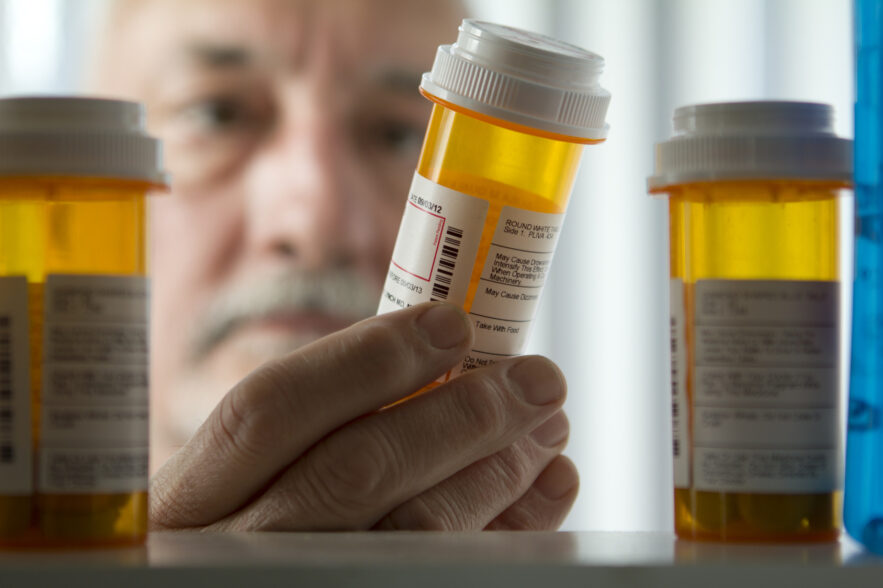This isn’t another lengthy blog on the multitude of problems with America’s healthcare system. Well, OK, maybe it is. But, instead of just droning on about the countless ways the system could improve (because, let’s face it, there are plenty), what if there was a way you could make a difference? It doesn’t take a massive donation of finances. It doesn’t take writing to or running for Congress. It doesn’t take lobbyists or legal battles. It just takes you. John Q. (or Jane Q.) Public can make a difference. Want to know more? Keep reading.
Browse This Article
Just How Bad Is America’s Healthcare System?
I promise, this isn’t what it is all about in this blog. But, it is important to understand the precise state the system is in before you can understand what you can do to change it.
Healthcare Spending
Let’s start with spending. The United States, by an absolute landslide, spends the most on healthcare, more than any other country in the world. Despite spending 18% of the gross domestic product (GDP) on healthcare, the U.S. has the highest death rate when it comes to avoidable deaths.
We’re spending billions, yet the U.S. has “the lowest life expectancy at birth, the highest death rates for avoidable or treatable conditions, the highest maternal and infant mortality, and among the highest suicide rates,” according to studies. We have the highest rate of people with multiple chronic conditions.
Just how much is the country spending? The price tag in 2021 topped $4.3 trillion in healthcare in the U.S. alone. That makes an average of $12,900 per person being spent on healthcare each year. If you’re curious, the average cost of healthcare per person in other “wealthy countries” is near half as much!
It seems, like so many of life’s problems, throwing more money at it isn’t making it better.
14 Prescriptions Per American
Our current healthcare system also clearly focuses on prescription drugs. Take a look at the numbers:
Last year, there were 4.76 billion retail prescriptions filled in the U.S.,” says Murray Stahl, chairman and CIO of Horizon Kinetics. “The current U.S. population is 334.299 million. This amounts to about 14.24 prescriptions for every human being in the nation.”
That’s an alarming figure. Before you even consider that these statistics do not even include pharmaceuticals dispensed in hospitals, in walk-in care clinics, nor over-the-counter drugs. Let’s also note that there are nearly 30 million Americans with no insurance. That’s about 9.2% of the country’s population. [That means they are probably also not included in the prescription drug figures. That’s a lot of prescribing! And where is it getting us?
The Power of Advertising
Why do we all take so many pills? Because advertising works. Pharmaceutical companies spent $6.88 billion dollars in 2021 advertising to the public. This expense is paid for by higher drug costs to you.
“They do it because it works,” Barbara Mintzes, professor of evidence-based pharmaceutical policy at the University of Sydney, told Maryanne Demasi. “Drug companies would not be spending the money if it did not lead to expanded sales.”
Those supporting DTCA argue that it helps to inform the public about both medical conditions and possible medications that may help. Mintzes told Maryanne Demasi Reports she isn’t convinced.
“I totally agree that people need information on medicines but getting that information from advertising is not the same as getting it from an unbiased source,” says Mintzes. “There is no public health rationale and no reliable evidence that it leads to better care, public or patient empowerment, or to the type of information needed for shared informed treatment choices.”
Recent studies showed that Americans may not be aware of the use of DTCA and its power. An FDA survey found that “ 29% of consumers believed that only completely safe medicines could be advertised on TV.” In a similar California study, it was 42% of consumers.
That is not true. No medicine is completely safe. Every drug has side effects. The FDA has to determine if the expected benefits from a drug outweigh the likely side effects. If the pharmaceutical company can make the case that their proposed drug is reasonably safe and effective, the FDA will approve it.
It doesn’t have to be this way, the United States is one of only two countries in the entire world that permits such direct-to-consumer advertising (DTCA), the other one is New Zealand..
How You Can Change America’s Healthcare, Today
Americans are sold drugs on TV and on the internet. We are promised the pill will fix our problems. We take a lot of pills. And yet we aren’t healthy. We could blame the healthcare system, advertising and a lot of other things that are out of our control.
Here’s something you can do today, to take fewer drugs and lower your own and your family’s health care expenses.
Take control of your health. At your next doctor’s appointment, don’t ask for a prescription. Don’t ask for a pill to “fix” your symptoms. And if you find yourself asking about a drug you saw advertised on TV or the internet, think carefully. Were you sold a bill of goods?
We become part of the problem when we expect a prescription or ask for a pill for a health problem that could be addressed by more exercise, better nutrition, or non-drug options like physical therapy. Doctors say they feel the pressure to prescribe. A study of medical professionals showed that 91% of the physicians who responded reported that they felt under pressure to prescribe products patients asked them about during a visit.
There is an overarching belief in this country that whatever ache or pain, physical or mental, there’s a pill for that. But, it just isn’t the case. Instead, America suffers from life-altering side effects and adverse events (aka negative reactions) because of the immense amount of medication.
Don’t let your doctor off so easily. Yes, your visit may be short. Yes, you may not feel that you can demand more, but it is your right and responsibility to advocate for yourself. Instead of asking for the pill to provide the cure, offer to do the potentially harder methods.
Improve Your Diet and Exercise More
Diet and exercise do not have side effects, unless you count things like a runner’s high or healthier greens in your fridge a side effect. So many illnesses can be eased with exercise alone. It has been categorically proven to improve medical conditions and their symptoms. Even a daily walk can make a major difference.
There are diets for nearly every condition, too. Food is medicine. What you eat makes a major difference on your medical condition and its symptoms. An anti-inflammatory diet has been shown in studies to reduce blood pressure, improve mental health and cognitive function, and improve your immune system.
If costs are a concern, Medicare and Medicaid can cover many programs, from screenings to weight loss programs. You can also check with your health insurance program to see what they offer. From gym discounts to nutritional guidance, many programs may be paid for by your current policy.
Weigh Your Options
One way to change healthcare is to shift your focus. Don’t go in thinking ‘I need medicine for this.’ Instead, weigh your options.
Think twice before you accept a new prescription. Ask about the side effects. Understand the risks and benefits of this drug in your body. Instead of simply taking your script right to the drug store, consider alternatives first.
What other treatment plans may work for you? Each month, MedShadow features lifestyle changes based on your medical condition that may be a better option than medication. Some illnesses may benefit from dance classes. Others may be eased with acupuncture. A prescription medication is not your only option.
Sleep On It
What about your sleep routine? Are you getting enough rest each day? From improvements in brain function to reducing your risk for diabetes and heart disease, your sleep can go a long way to improving your health.
And no, insomnia and lack of sleep doesn’t need a pill to be cured either. Instead, consider options like helpful apps that can help without the risk of side effects. Try improving your surroundings, with efforts like keeping your room cool, dark, and quiet. Opt for a sound machine if it helps, instead of a medication.
A Shift In Thinking About Your Health
Change can start with you. While we all wait for the nation to clean up its plethora of problems in its healthcare system, you can make a difference starting today. Medicines can heal, help, but also harm. Instead of adding to the profits of pharmaceutical companies, consider taking a step at actual improved health.
You have the power. You control your body. You make the choices. Mahatma Gandhi once said
“be the change you wish to see in the world.” Who knew it could apply to your healthcare choices, too? Don’t rely on our government, federal agencies, or laws about advertisements to make those massive changes. You can take steps each day to improve your own health, and those of your family, friends, and loved ones.
Some Medications Help and Heal
It is important to note, while you should explore all options for your ailments, there are illnesses and conditions that require medication. Not all medications harm. They also heal and help. The best thing you can do is research. Check trusted resources, unbiased and independent journalism sources, not influenced by Big Pharma. Understand all of the pros and cons that may occur with a new medication.
Talk to Your Doctor
As always, it is best to speak with your healthcare provider before making any changes in your medications. Many drugs require a tailored plan of tapering and may need the supervision of your doctor.






